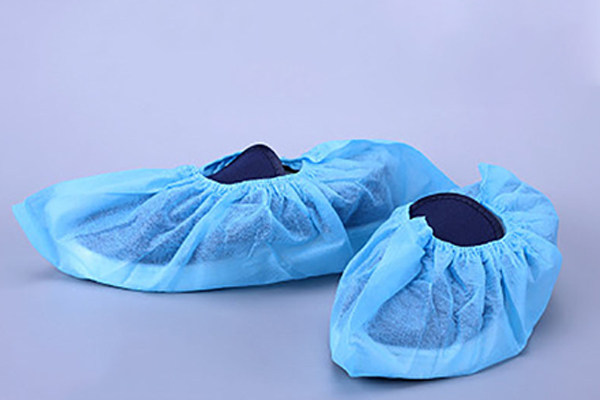When it comes to dental procedures, ensuring the highest level of hygiene and cleanliness is crucial. That’s why dental bibs have become an essential tool for dentists and dental hygienists worldwide. But have you ever wondered what dental bibs are made of, or how to choose the right one?
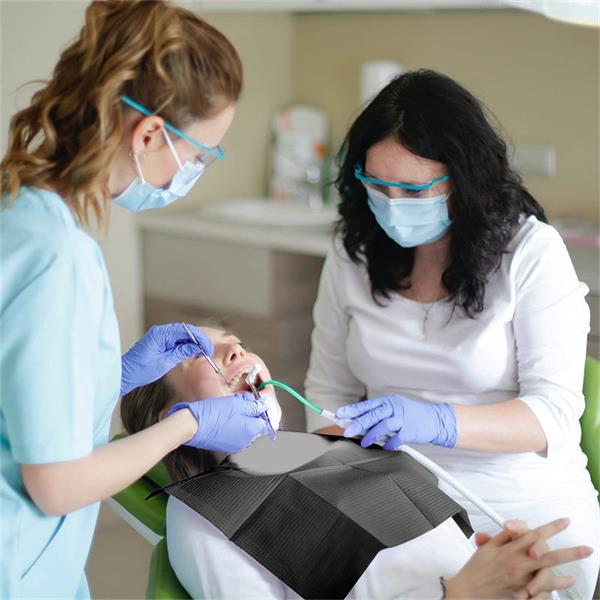
In this ultimate guide, we’ll share with you 8 facts about dental bibs that every dental professional and patient should know. From the benefits of using dental bibs to the different types available on the market, we’ll cover it all.
So, let’s dive in and discover what makes dental bibs an indispensable part of any dental procedure.”
What are Dental Bibs?
Dental bibs are protective coverings that are primarily used during dental procedures to maintain hygiene and prevent contamination.
They are made of materials such as paper, plastic, or a combination of both, and come in a variety of sizes and colors.
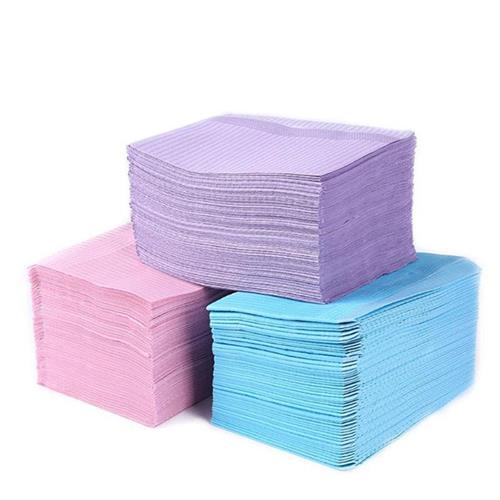
Dental bibs serve several important functions in dental offices. First, they protect patients from coming into contact with bodily fluids and materials during procedures. This is particularly important for preventing the spread of infectious diseases and bacteria.
Secondly, dental bibs help to keep dental tools and surfaces clean by absorbing liquids and preventing them from dripping or splashing onto clothing or other surfaces.
There are different types of dental bibs available depending on the specific use case. Patient bibs are the most commonly used type of dental bib and are designed to be worn around the neck and cover the chest area.
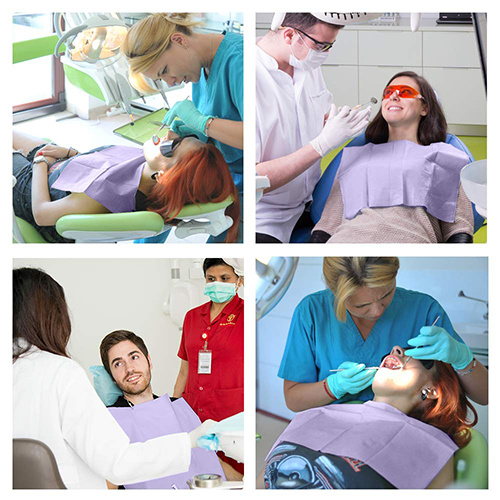
They are available in different sizes and colors to suit the needs of different patients. Tray covers, on the other hand, are used to cover dental trays and keep them clean and sanitary.
Additionally, dental bibs can be used in other industries such as tattoo parlors, nail salons, and other medical settings to provide an extra layer of protection and maintain hygiene.
The Benefits of Using Dental Bibs
Using dental bibs during dental procedures offers numerous benefits. First and foremost, dental bibs provide a barrier that protects patients from bacteria and other contaminants that may be present in the mouth or on dental tools.
They also protect the clothing of both the dentist and the patient from any liquids or materials that may be present during the procedure.
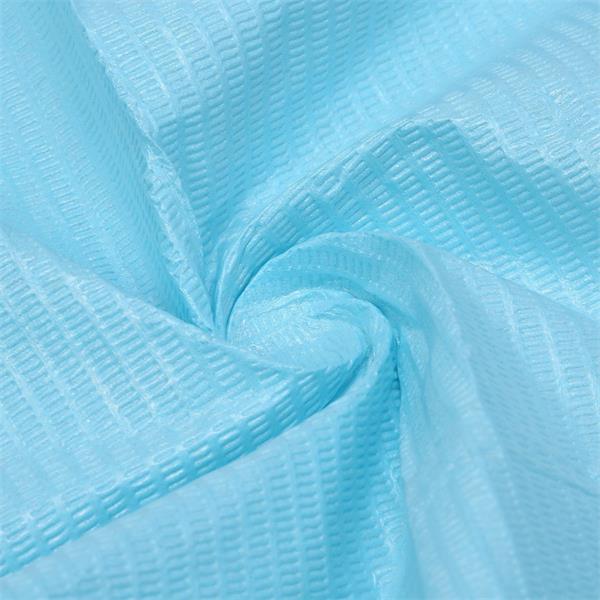
Additionally, dental bibs can help maintain a sanitary environment in dental offices by preventing the spread of germs and other contaminants. When patients see that their dentist is taking measures to ensure their safety and comfort, they are more likely to trust and return to that dentist in the future.
Dental bibs are also very affordable, which makes them an easy choice for dental offices looking to maintain a high level of hygiene without breaking the bank.
How to Choose the Right Dental Bibs
Choosing the right dental bib is essential for ensuring maximum protection and comfort for both the patient and the dentist.
When selecting dental bibs, there are several factors to consider. Firstly, the material is an important consideration.

While many dental bibs are made from polyethylene, there are also options made from polyurethane or other materials. The size of the dental bib is also important, as it should be large enough to cover the patient’s chest area without being too tight or uncomfortable.
Additionally, waterproofing properties are critical to ensuring that liquids and saliva do not leak through the bib and onto the patient’s clothing.
Different types of dental procedures may also require different types of dental bibs. For example, procedures that involve a lot of liquid or saliva may require bibs with more waterproofing protection.
On the other hand, procedures that involve less liquid may allow for bibs made from thinner materials. Ultimately, it is important to consider the needs of both the patient and the dental professional when choosing the right dental bibs.
Types of Dental Bibs
Dental bibs are available in various types, each with its unique features and benefits. Disposable dental bibs, for instance, are popular in dental offices as they are designed for one-time use, reducing the risk of cross-contamination.
They are made of absorbent paper or polyethylene material, which can easily absorb liquids and keep the patient clean and dry during the procedure.
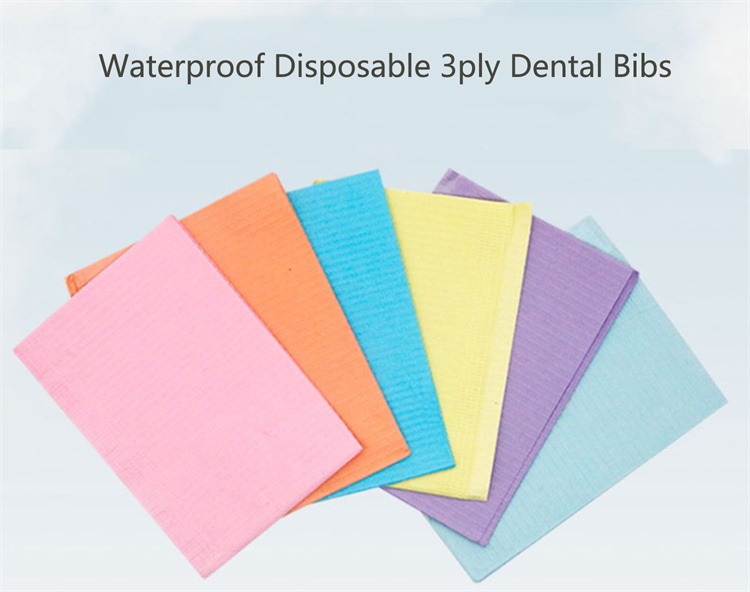
On the other hand, black dental bibs are made of a non-woven material that is more durable and water-resistant, making them ideal for longer procedures or those involving liquids. They are also designed to be more comfortable for patients, with a soft texture that reduces skin irritation.
Additionally, some dental bibs come with adhesive strips to secure them in place and prevent movement during the procedure, while others have ties or snap closures. Choosing the right type of dental bib depends on the specific needs of the dental procedure and the comfort of the patient.
Other Industries That Use Dental Bibs
Dental bibs are not just limited to dental offices but are also used in other industries that require protection against liquids and contaminants. For example, tattoo parlors and nail salons use similar products to protect their clients from ink or chemicals. The same product is marketed under different names, such as tattoo bibs or tray covers.
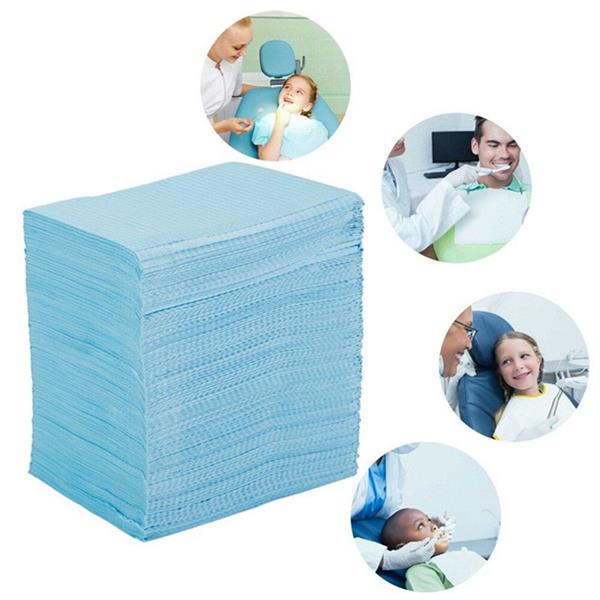
However, the materials used and the features offered are often the same as those used in dental bibs. These industries recognize the importance of maintaining a sanitary environment and preventing the risk of contamination, just like dental offices.
Using dental bibs in different industries under different names shows how versatile this product can be.
Materials Used in Dental Bibs
Dental bibs can be made of different materials, each with its advantages and disadvantages. One common material used for dental bibs is polyurethane.
Polyurethane bibs are waterproof and provide excellent protection against liquids and chemicals, making them suitable for procedures that involve the use of harsh chemicals. However, they can be more expensive than other types of bibs.

Tissue paper is another material commonly used in dental bibs. Tissue bibs are cost-effective and disposable, making them convenient for one-time use.
However, they are not waterproof and can easily tear, which can lead to contamination. Dental bibs made of paper are lightweight, soft, and comfortable for the patient, but they cannot provide adequate protection against liquids and chemicals.
Dental professionals need to choose the appropriate material based on the specific needs of their patients and the procedures involved.
How Dental Bibs are Designed and Manufactured
Waterproof dental bibs are typically designed as rectangular or trapezoidal-shaped disposable pieces of material that can be draped over a patient’s chest and neck to protect their clothing from any debris, fluids, or droplets that may be produced during a dental procedure.
The manufacturing process of dental bibs usually involves several stages, including cutting, folding, and packaging. The materials used in the manufacturing of dental bibs can vary, such as tissue paper, polyethylene, or polyurethane.
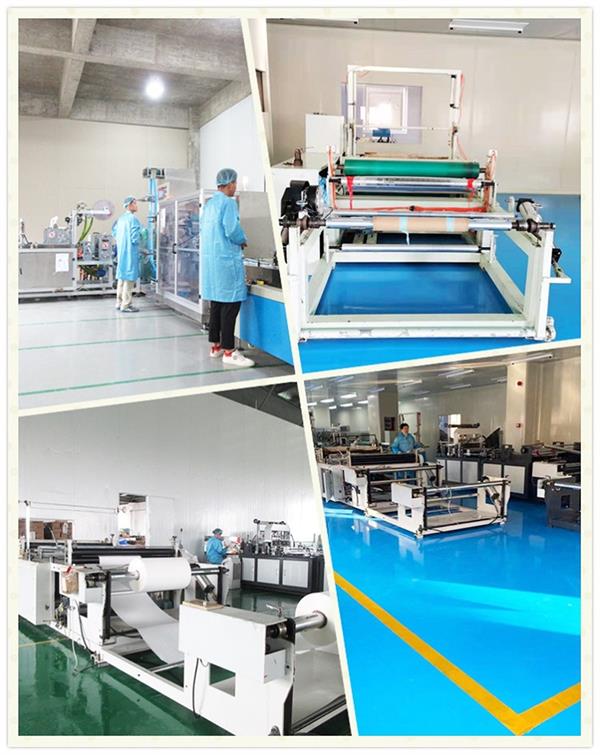
To ensure that dental bibs are safe and sanitary for use during dental procedures, manufacturers must adhere to strict guidelines and regulations set by the regulatory bodies. For instance, manufacturers must ensure that the materials used in the production of dental bibs are free from harmful chemicals or toxins that may pose a health risk to patients.
Additionally, manufacturers must ensure that dental bibs are properly sterilized and that the packaging used for the bibs is also free from any contamination. This helps to ensure that dental professionals can rely on the safety and efficacy of dental bibs during dental procedures.
The Importance of Disposable Dental Bibs
Disposable dental bibs are the preferred choice for many dental professionals due to their ability to offer greater protection against contamination and infection.
These bibs are designed to be used once and then discarded, reducing the risk of cross-contamination between patients. Disposable dental bibs are made from lightweight materials, such as tissue paper or polyethylene, that are easy to dispose of and do not require any special cleaning or sterilization processes.
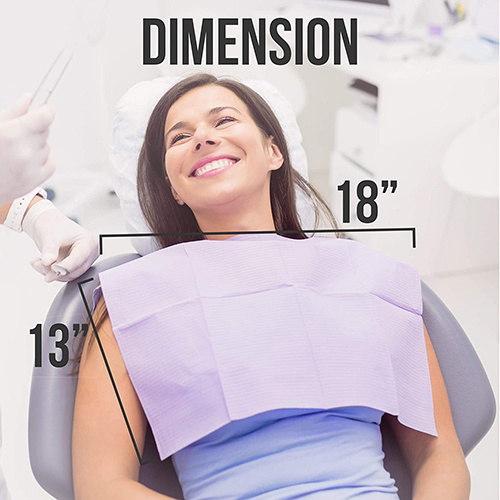
Additionally, these bibs are available in a variety of sizes and colors, making it easy to find the right bib for each patient and procedure. The use of disposable dental bibs can also help dental offices save time and money on cleaning and sterilization, as well as reduce the environmental impact of traditional cloth bibs. Overall, the benefits of using disposable dental bibs make them a popular and important choice in the dental industry.
Conclusion
In conclusion, dental bibs are an essential tool for maintaining hygiene and preventing the spread of contaminants and infections during dental procedures. These bibs offer protection for both the patient and the dental professional, and they come in various types and materials to suit different needs.
When choosing dental bibs, factors such as material, size, and waterproofing should be considered, as well as the type of dental procedure being performed.
Disposable dental bibs are the preferred choice for many dental professionals due to their convenience and superior protection against contamination.



